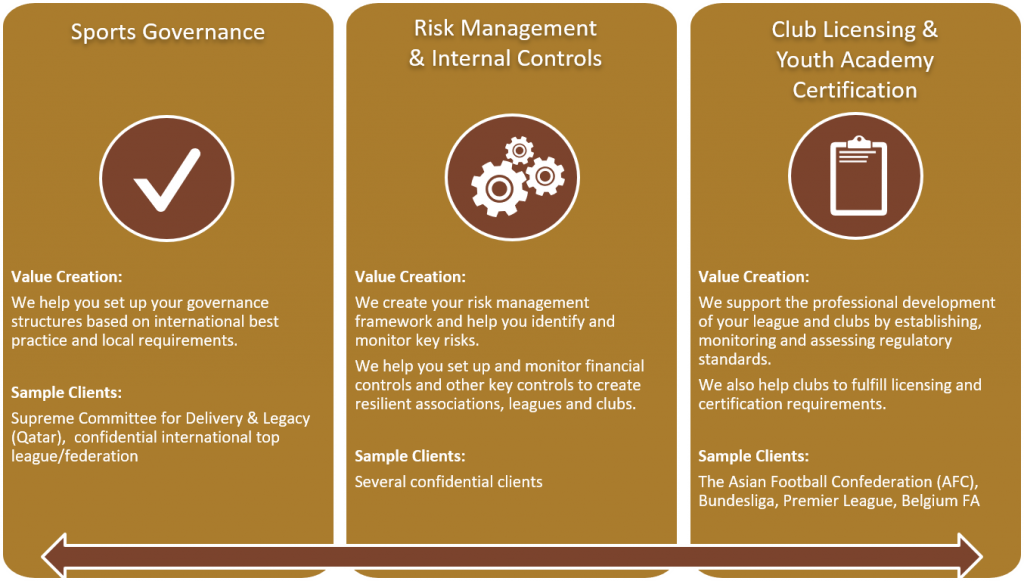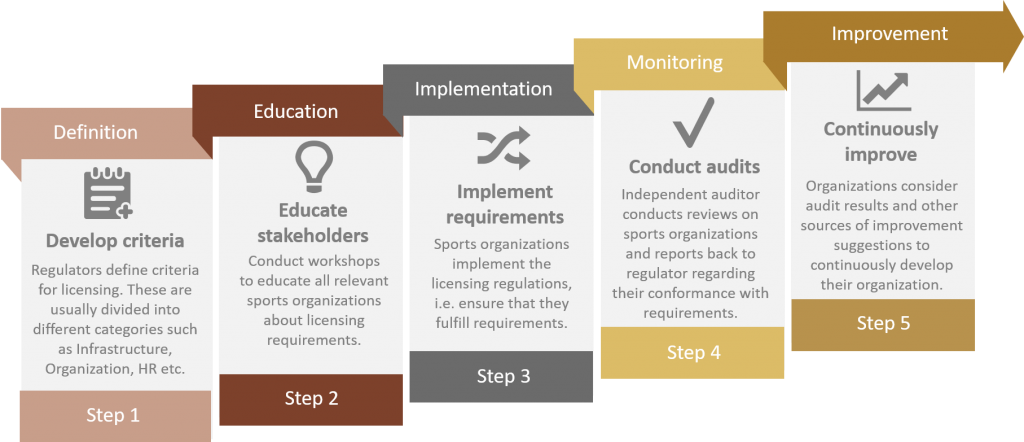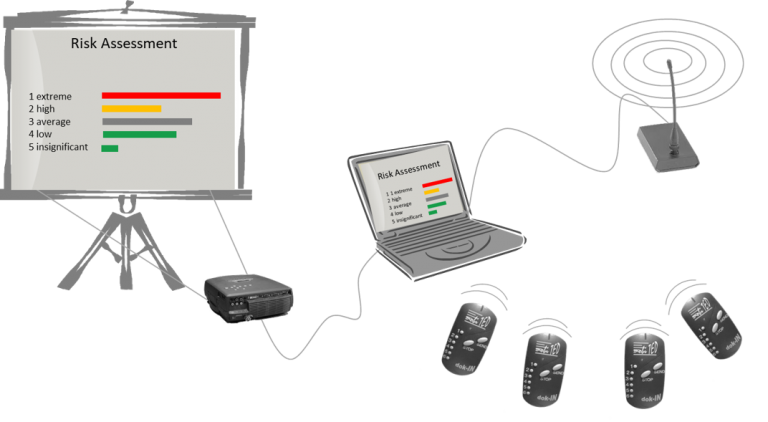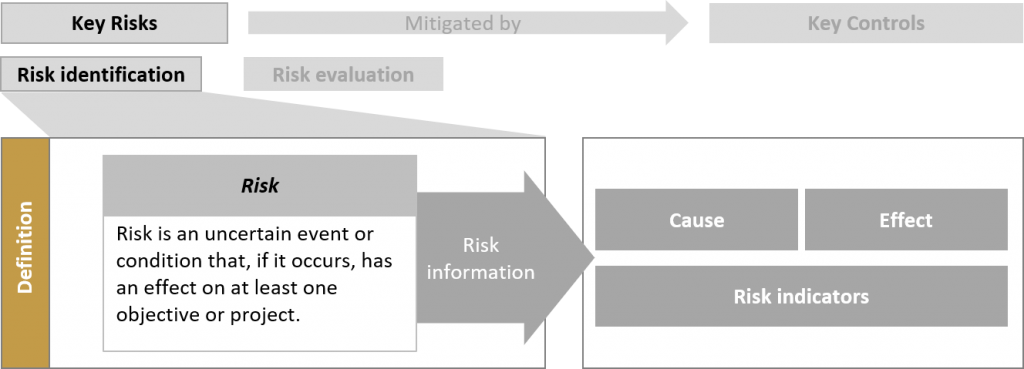The integrity of sport has been subject to significant challenges over recent years, inter alia given the growth of sports betting, match-fixing, corruption, misappropriation of funds and other criminal activities. Such activities have highlighted the vulnerability of sport to corrupt practices. Sporting bodies are no longer able to deal with the threat and challenges to sporting integrity alone and they will increasingly seek the assistance of expert organizations, consultants and government bodies.
International sports bodies are responsible for and should continue to build on the steps already taken to promote and support good governance at all levels. Higher-level sporting bodies (e.g. international federations) in particular should, where appropriate, support their (national or regional) member organizations in establishing and maintaining appropriate standards of good governance for the sports body concerned.
The following key points should be considered by sports organizations at all levels to enhance transparency, accountability and tackle corruption in their organizations:
a) Establishment of accountability standards
Sports bodies should establish clear levels of oversight and accountability to ensure that powers are exercised appropriately and consistently with the objectives and functions of the relevant department or committee.
Proportionate checks and balances should be developed by the sports body concerned.
b) Performance indicators
Key performance indicators and evaluation procedures commensurate with the size of the sports body should be set at all levels of the organization to promote efficiency and good management.
c) Internal control measures
Sports bodies should adopt proportionate internal controls, reporting requirements, data protection policies and financial management strategies to at least the level required by applicable laws. Such controls should include clear financial authorization limits, four-eyes-principle and formalization of agreements in legally enforceable form.
d) Financial information
Financial information (produced in accordance with applicable laws and subject to appropriate auditing standards) should be made available to members, stakeholders and the public wherever possible. All such financial information should be clearly presented and preferably form part of an annual report of the activities of the sports body.
e) Distribution of funds
If the sports body makes financial distributions to members and/or stakeholders such distributions should be documented and made subject to appropriate terms and conditions and on-going reporting requirements to the distributing body on the ultimate deployment of such funds.
f) Risk management
Sports bodies should adopt effective and proportionate risk management arrangements designed to identify, assess, control, manage and mitigate risk across their activities. This should include evaluating the optimum legal form for the sports body and/or its members to operate under and putting in place appropriate insurance arrangements.
g) Confidentiality
Sports bodies should develop appropriate confidentiality protocols and codes which are capable of rigorous enforcement. They should also have clear policies on who may speak with the media and in what circumstances. Where possible sports bodies should develop rapid, crisis response protocols to be deployed in specific scenarios.
h) External and internal communication
In addition to developing transparent external communication policies, effective and transparent internal communications for staff, members, volunteers and stakeholders should be developed so they are aware of important developments, events, meetings, policy changes and opportunities.
i) Professional development of staff and volunteers
Continuing professional development for all personnel and volunteers should be promoted wherever possible along with clear guidelines for staff conduct in line with the organizations’ code of ethics.
Consistent with the sporting culture, it is important that good governance principles are embraced voluntarily by sports bodies in the wider interest of promoting effective sporting regulation and development. Enforcement by national governments via contract and/or funding conditions might have the potential to compromise the autonomy of sports bodies and create tensions in the wider international sporting framework.
Autonomous self-regulation by the sport movement remains the best option and is consistent with the structure of international sports. All parties should therefore have an interest in ensuring effective governance structures are in place as this is more likely to result in better sports policy and minimize disputes or challenges both from within a sport or outside.




